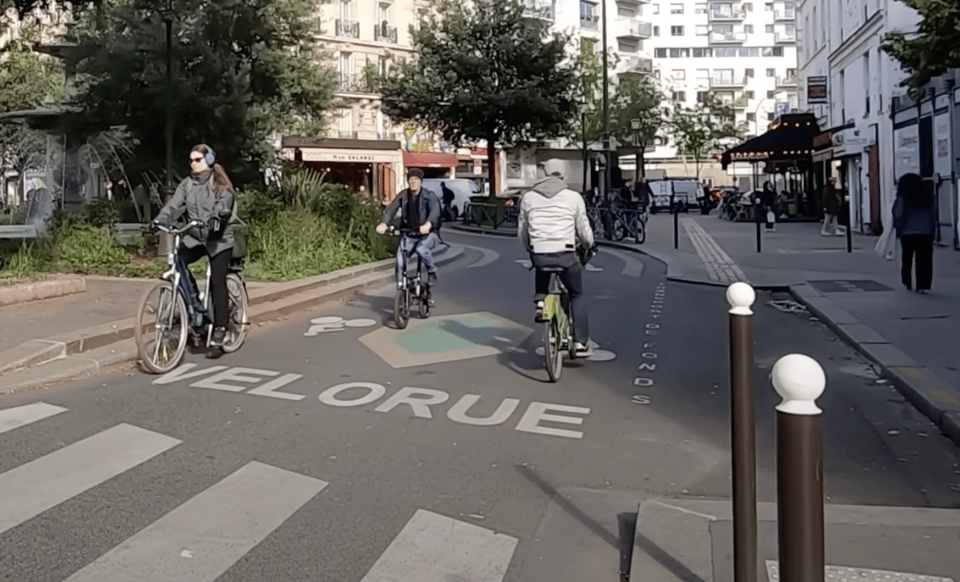I've already written too many words

Two pieces of theatre, both adaptations. In my fair head, where we lay our scene.
Royal, at Théâtre Jean-Duceppe in Montreal. Originally a novel by Jean-Philippe Baril Guérard, which he adapted for stage. It follows law students at Université de Montréal as they engage in a cutthroat competition for power and influence that leaves their lives slashed and shattered.
Illinoise, at the St. James Theatre in New York. Originally an album by Sufjan Stevens, reinvented as a dance musical by choreographer Justin Peck and playwright Jackie Sibblies Drury. It is a queer story about self-embrace, and the embrace of those around you.
Illinoise is striking in part because there is no dialogue. A complete, complex, explosive story is told only through dance and song. Royale, in contrast, relies far too heavily on exposition. There are lines between the characters themselves, of course, some of which have the subtlety of a hammer. But most frustratingly, the show breaks the fourth wall over and over again, so the characters can proffer additional explanations to the audience about who they are, who their peers are, and what each of them is doing in the story.
One of these shows was adapted by a novelist. The other was adapted by a choreographer. And it shows.
That’s not to say that Royale relies on nothing but dialogue. Its staging remains sharp and impactful. As the show begins to reach its peak, one of the actors uses a hand-held video camera to project a close-up of his face onto a scrim of chainmail strands. It forces the audience to dart between the actor on stage and the actor on screen, and requires him to convey emotions at two scales simultaneously — the interior turmoil of someone in a pressure-cooker, and the damage that pressure is doing to those around him.
Meanwhile, in Illinoise, Peck’s choreography occasionally veers into the literal, as when the zombies of America’s past hold up signs bearing their own names: Thomas Jefferson, Eugene McCarthy, etc. With Illinoise, these incidents are so few and far between that they are striking when they do occur. With Royal, I found myself struggling to notice and hold onto the moments when subtext came out to play.
So much can be said without words, and too many words can stamp out richness of meaning.
I’ll leave it at that.
🎭
Other things of note:
➔ Mark Mangini, the sound designer for Dune, explains to Le Monde how his team blended noises from the real world to create a science-fiction film soundscape that is at times both familiar and unknown, moving away from a sci-fi tradition that prioritizes otherworldly effects.
➔ At-home DNA kits are making it easier than ever for people to learn that they are a child of incest, forcing difficult decisions about how they handle something that had previously been hidden within their families. A riveting and compassionate read from Sarah Zhang in The Atlantic.
➔ YouTuber Ludovic B followed a French senator as part of his “day in the life” series. French senators are not directly elected, so their constituents are essentially the mayors and councillors from regions and municipalities in their district. The Senate introduces, modifies, and votes on legislation, but its decisions can be overturned by the directly-elected National Assembly. All-in-all, a fascinating look inside an oft-misunderstood institution, including artful dodging by the senator when asked if his older colleagues, many of whom regularly nap on the senate floor, should retire.
➔ Parisian bike YouTuber Altis Play dives deep into vélorues, sometimes known as bike boulevards. The key to these streets’ ability to prioritize two-way through bike traffic, especially in dense urban environments, is “modal filtering” that forces cars to turn off the street after a block or two, achieved through a combination of barriers and changes to the allowed direction of car traffic.

➔ Put aside the aggressive presentation style and algorithm-juicing 15-minute runtime: this video from Road Guy Rob (yes, that’s his moniker) offers an engaging, detailed explanation of why freeway ramp meters are effective at wringing the most out of existing highway capacity. Don’t know what a freeway ramp meter is? Settle in, it’s worth it.
➔ Local reporters for CBC in Ottawa recently filed a story (including an incredible 19-minute video report) that dug into how that city has fallen short in its implementation of the Housing First policy, particularly when participants do not receive supportive mental health and addiction services after being housed. This often leads to a downward cycle for the individual, with negative impacts on others. The reporters compassionately portrayed the homeless people, caseworkers, city administrators, landlords, and neighbours, as they all strive to achieve the particularly Canadian desire for “peace, order, and good government.”
➔ Do you guys ever think about dying? Karl Tremblay, singer for the iconic Québecois folk-rock group Les Cowboys Fringants, passed away last November after living the last four of his 47-year life with prostate cancer. Before he passed, the group recorded La fin du show, its last song. The video is moving, but the lyrics are what hit me most. It’s a distinctly atheist, humanist, and — dare I say it — Québecois view of life and death.
💐
I’ll conclude this epistle with a gem from the latest edition of Aaron Gordon’s newsletter, Book Time, in which he writes about Siskel & Ebert:
A great critic can turn a brief review of a work of art into a work of art itself. For example, I recently saw and then looked up Ebert’s review of a forgotten Richard Linklater gem called SubUrbia about a group of late teen slackers hanging out in a strip mall in suburban Texas. A former high school classmate they all thought was a loser turned out to hit it big as a guitarist for a rock band and came by to see them after a gig. He shows up in a stretch limo and, in a brilliantly scripted and choreographed scene, talks to the main slacker dude about how disappointing life as a rock star is. “It's just airport, hotel, show, airport, hotel, show.”
From this modest launch point, Ebert takes control:
“There is, I believe, a seductive quality to idleness. To be without ambition or plans is to rebuke those who have them: It is a refusal to enlist in the rat race, and there may even be a sad courage in it. But what Linklater sees is that it is so damned boring. Life without goals reduces itself to waiting. What it finally comes down to is airport, hotel, show--but without the airport, the hotel or the show.”
[…] SubUrbia was largely a movie about men arguing with each other about nothing while they waited for nothing to happen. This is also the central proposition of every failed Siskel and Ebert imitation, argument as a form of passing time, to fill the void, to produce cheap content.
[…] Siskel and Ebert may have been two men arguing on television, but they had a goal. They wanted you to love movies as much as they did. All the other men yelling on TV will never do what they did because they have no goal, they’re just yelling, and it’s so damned boring.
❤️🔥
Have a great week.

